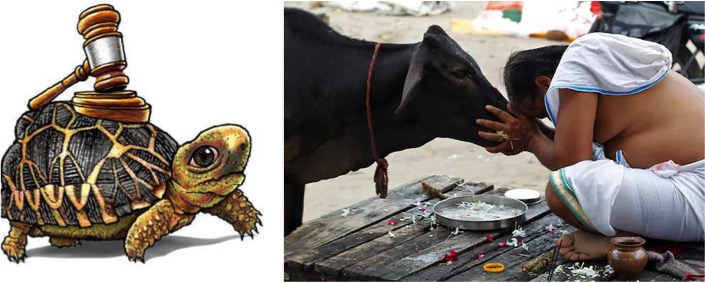Milk is the first food for life. The integrity of milk labels is under threat today. This *protection of the integrity of milk and dairy is vital* . In a changing business environment the production and placement on the market of imitations can pose potential health risks for consumers. There has been quite some delay by the food regulator FSSAI in India to enact the law for protecting the integrity of milk labels. This is a benign injustice to 100 millions small and marginal dairy farmers as well as 1.3 billions dairy consumers in India.
Delayed justice always bears a cost. Currently that cost is borne by none other than the poor small and marginal farmers associated with dairy farming. The problem doesn’t end here . The dairy processors have made huge investments to ensure smooth supply of milk and products to the market. There is a huge eco system of stakeholders from the private and public sector also which is at stake due to this delay.
Also read : Cheese will no more be Cheezzy : FSSAI amends regulation on analogues and testing of ghee purity
Currently the plant based dairy products industry is taking the generic dairy industry heads on. They are doing it by publicising the false notion of dairy being bad as it is an outcome of cow cruelty. The frame of reference being considered by so called social organisations is utterly from a western context of dairy farming. Commercial dairy farming has a dual dimension of dairy and beef in the western world. The farmers keep the animals for 2-3 lactation cycles only for dairy purpose.
Cow is part of a farmer’s family
In Indian culture a cow is an eternal part of a farmer’s family. There is no counting of the number of lactations that animals spend in the backyard of an Indian farmer. The ban on cow slaughter in India resolves any further doubt on mishandling of this sacred animal in an Indian context.
Also read : Amul campaigns to bust “myths” about non-dairy beverages
The natural origin, nutritional value, functional properties and sensory characteristics of milk and milk products have created a uniquely positive consumer perception. This also is helpful in creating a strong market position of milk and milk products all over the world.
Codex Alimentarius adopted the The Codex general standard for the use of Dairy terms (GSUDT) in 1999. The mandate was to ensure the correct use of dairy terms intended for milk and milk products. The same also ensured fair practices in the food trade . The purpose was to avoid any confusion or misleading of consumers by the use of dairy terms on non-dairy-products.
GSUDT Rules
The clear rules as laid down in the GSUDT *provide an internationally accepted framework to protect the integrity of milk and milk products against nutritionally inferior imitation products that attempt to take advantage of the natural and healthy image of milk and milk products*. Its application assists consumers all over the world in making their own purchasing decisions regarding milk products versus non-milk products and it ensures fair
practices in the food trade.
Also read : PETA India advises Amul to switch to producing creamy dairy-free milk
Codex Alimentarius under GSUDT has given two simple definitions for the milk and milk products as given below. So where is the confusion on this? What’s wrong in calling milk and milk products by the names which are generic and popular ? What’s wrong is restricting all other food products not matching the criteria to be known by some other names? We have not seen any authority banning the production of any such analogue products. The regulation is not about banning them. It is only about ethics and integrity of an age old traditional range of food products.

Dairy terms augment analogues more than their intrinsic nutritional power
It seems that the dairy nomenclature gives an easy route to these plant based derivatives in the consumer minds. They wish to piggyback the benefits of strong positioning of dairy products by introducing their less nutritional analogues products. There are 3 key questions to be answered at this stage ?
- If milk and milk products are so bad then why do they name their plant-based and cell-based laboratory-made products with dairy terms ?
- Why don’t they be innovative enough in coining new nomenclature for their dairy-like products eg in categories of milk, cheese, yogurts, ice-cream etc ?
- If their products are so nutritional then why don’t they let the consumer decide on what is good for them without talking negative about a generic industry ?
Also read : NCDFI asks Delhi HC about mislabelling of plant based products as milk
I think it is a right time for the regulator FSSAI to enact the law related to analogues. The draft notification for the same was released in July 2020. The law will also be giving an opportunity for all dairy processors to use a logo to simplify consumer-choice-process. At the end, the menace of use of veg-oil in ghee, paneer, khoa and cheese with or without declaration would also be contained well.
A Blog by Kuldeep Sharma Chief editor , Dairynews7x7

